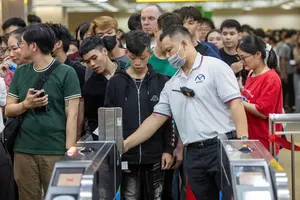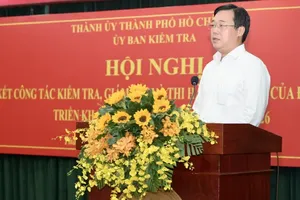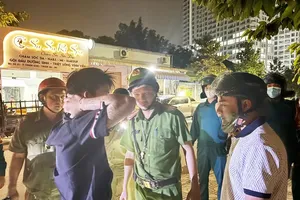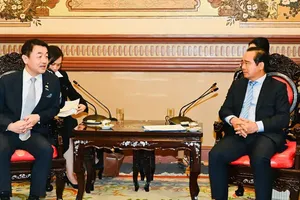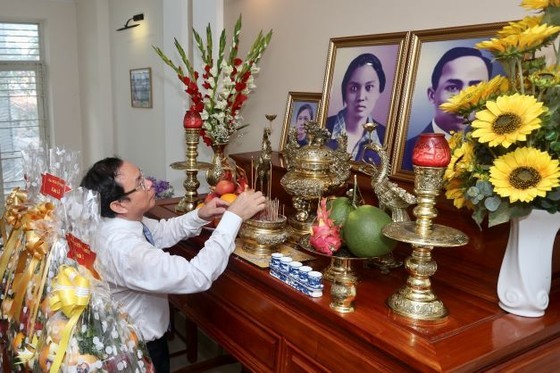
The delegation offered incense to express their deep appreciation to all meaningful contributions of late General Secretary Le Hong Phong to the Vietnamese revolution.
Secretary Nguyen Van Nen then had an informal chat with the late General Secretary’s daughter – Ms. Le Nguyen Hong Minh about her daily activities and health status. He wished her good health and happiness, along with the hope that she would continue to promote the precious tradition of her family during the national construction and development.
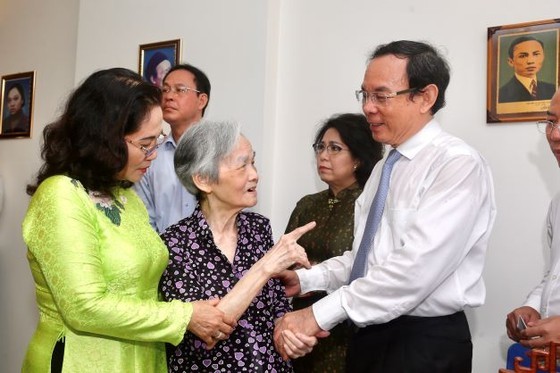
In 1924, Le Huy Doan (Le Huy Duc) and like-minded people came to the Northeast of Thailand to carry out revolutionary activities, changing his name to Le Hong Phong. At the end of 1924, he met leader Nguyen Ai Quoc, who helped him to become an elite cadre and a resilient international communist soldier.
On June 22, 1939, Le Hong Phong was captured by the French colonialists and sentenced to 6 months in prison as well as 3 years of house arrest in his hometown.
In 1940, he was captured for the second time and sent to Kham Lon prison in Saigon (now known as Ho Chi Minh City). He was sentenced to 5 years of prison and exiled to Con Dao Island. There, he was tortured brutally but was still able to keep all secrets of his communist comrades. He even mobilized and directed his fellow prisoners to fight against the enemy’s beating and harsh rules of the prison.
After months being tortured, his health deteriorated, leading to his death at the beginning of September 1942. Before dying, he asked his comrades there to report to the Party that until the last moment, he still put his belief in the victory of the revolution in Vietnam.






